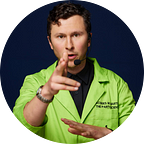The overlooked solution to a culture of disconnection and stress.
Are we really happier than the peasants of the medieval ages? There may be a problem here.
When I studied public health, pharmacology, and health education at the University of British Columbia, I learnt that most of the chronic health problems of our time come down to social disconnection.
I remember attending my first conference on Adverse Childhood Experiences.
I remember learning about the social determinants of health in my psychology course.
I remember being introduced to the work of Gabor Mate in the basement of the School of Public Health.
I remember having long conversations with my dad about the importance of community. He was a public health officer at the time.
One quote continues to ring in my mind: “The opposite of addiction is not sobriety. It’s connection.” — Gabor Mate
A few messages kept being reiterated throughout my degree: Diet and exercise matter much less than the quality of one’s human connections; Our medical system is dysfunctional and symptom-oriented; We have lost touch with community; Health is simpler than we think.
It turns out that the two largest preventative factors for all-cause mortality are a committed romantic relationship, and a strong network of friends, family, and neighbours, according to research generously compiled in Growing Young: How Friendship, Optimism and Kindness Can Help You Live to 100.
Does North America’s culture reflect this evidence? I believe the sad answer is no. And it is this truth that motivates a lot of the work I do.
There’s a lot of reasons to be optimistic about the direction of North American culture. But I think it is necessary to ground any optimism in hard facts: Suicide, depression, and loneliness are all on the rise in Generation Z. According to the latest data on mental health from the ongoing Monitoring The Future study, youth are hanging out with their friends less, they’re more anxious and depressed, and they’re sleeping less. They’re also the loneliest generation, according to the global health service company Cigna.
Alarm bells.
I look around. And I feel like I know the root cause. We all know. Our culture has gone awry. We’ve been absorbed by technology and work. We no longer share meals. We no longer go to church. We no longer meet our neighbours. We no longer play. We no longer say hello to one another.
In contrast to villages in rural Europe (and perhaps even rural Canada), city life has become alienating, lonely, and stressful.
We’re losing our ability to connect meaningfully.
And our cultural values are driving this. As my friend Pete Bombaci puts it, “We live in a culture that has never been more fast-paced, high-pressure, and high-stress.”
In summary, I believe the quality of our human connections is going down. And I believe the culprit is junk values, as defined by Johann Hari in his book Lost Connections: uncovering the real causes of depression.
I think a public health intervention of a massive scale is needed.
And so I started VYVE in 2019 to spread the colossal health benefits of meaningful human connection by leveraging an ancient art form.
When I say ancient, I mean that even cavemen participated in it. There are stone drawings that show this to be the case.
As author and myth buster Barbare Ehrenreich writes about it in Dancing in the Streets: A History of Collective Joy, ‘it does not go away, this ecstatic possibility. Despite centuries of repression, despite the competing allure of spectacles, festivity keeps bubbling up.’
The ancient art form is collective ecstasy.
Collective ecstasy, as I define it, is a sense of exhilaration and liberation created through shared ritualistic celebration.
My research and experiences have led me to believe that a regular ritual of collective ecstasy is the glue of community. Travelling to 12 different countries and observing firsthand the transformational power of celebration would convince you as well.
In the middle of streets, inside trains, on beaches, and at public squares, I facilitated magical moments where strangers united together and released. Over the years, I developed ‘party science’ techniques that enabled me to bring together strangers and induce collective ecstasy anywhere and anytime.
My research eventually led to the invention of vyving: a reliable means of accessing natural ecstasy through human connection. I wholeheartedly believe that vyving as a celebratory practice is one effective strategy for deflecting the toxicity of our depression-inducing culture.
And as Ehrenreich puts it, “we can live without it, as most of us do, but only at the risk of succumbing to the solitary nightmare of depression.”
It’s obvious I am upset by the disconnection in our world, the workaholism, and the junk values. But I am optimistic that a practice of collective ecstasy can address the resultant stress, depression, and disease.
I think the best thing we can do for our health is to invest in our social and family network. And I believe the best way we can do this is by coming together regularly and connecting beyond the intellect. Flooding our brains with healthy neurotransmitters. Moving our bodies. Looking at each other in the eyes. Dancing. Laughing. Singing.
My experiences are the reason I feel the promise in this. But the research has also piled up: singing, synchronized movement, laughter, and play are all social-bonding hacks. They cohere communities together. They release happy brain chemicals. They annihilate stress.
All of this explains why I have devoted the last three years of my life to developing the vyving practice and community.
And this explains why I will continue. Until infinity and beyond.
So what is my final recommendation for overcoming our culture of stress and disconnection? Find a group of people to dance, sing, laugh, and play with. Regularly. Or join one of my vyving classes.
